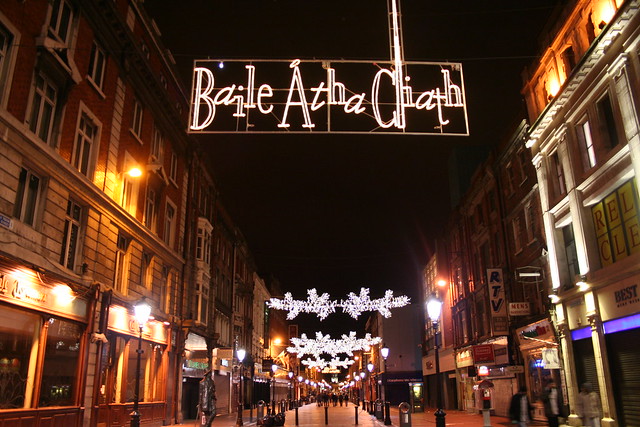Podcast: Play in new window | Download
In this episode we’re looking up words for high and related things.
The Proto-Celtic word *ardwos means high, and comes from the Proto-Indo-European *h₃r̥dʰwós., from *h₃erdʰ- (to increase, grow; upright, high) [Source].
Related words in the modern Celtic language include:
- ard [ɑːɾˠd̪ˠ/æːɾˠd̪ˠ] = height, hillock, top, high part; high, tall, loud, ambitious, chief, excellent, noble or advanced in Irish.
- àrd [aːr̪ˠd] = high, lofty, tall; great; loud; chief, eminent, superior or supreme in Scottish Gaelic
- ard = high, towering, tall, big, loud, height, high place, fell, incline, district, region, direction, compass point or pole in Manx
- ardd [arð] = hill, highland, top, high or upland in Welsh
- ardh = height or high place in Cornish
- arz = high or elevated in Breton
The Ardennes, a region of forests and hills in mainly in Belgium, Luxembourg, and also in France and Germany, was known as Arduenna Silva in Latin. The first part of the Latin name probably comes from the Gaulish *arduenna (high), or from the Latin arduus (lofty, high, steep, tall), which comes from the same PIE root [source].
Other words from the same PIE roots include arbor, arduous, orthodox and orthography in English, arbre (tree) in French, árbol (tree, mast) in Spanish, and рост [rost] (growth, increase, rise, height, stature) in Russian [source].
You can be find more details of words for High, Elevated, Noble and related things in Celtic languages on the Celtiadur, a blog where I explore connections between Celtic languages in more depth. I also write about words, etymology and other language-related topics on the Omniglot Blog.










